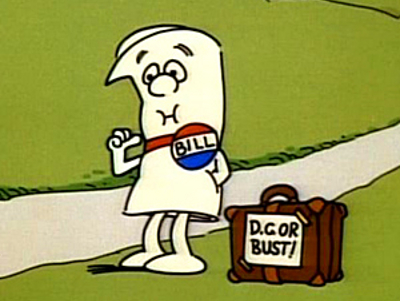House Passes CISPA Bill Again with 288-127 Vote
House passes the CISPA bill... against. Now it's the Senate's turn.
Here at Tom’s Guide our expert editors are committed to bringing you the best news, reviews and guides to help you stay informed and ahead of the curve!
You are now subscribed
Your newsletter sign-up was successful
Want to add more newsletters?

Daily (Mon-Sun)
Tom's Guide Daily
Sign up to get the latest updates on all of your favorite content! From cutting-edge tech news and the hottest streaming buzz to unbeatable deals on the best products and in-depth reviews, we’ve got you covered.

Weekly on Thursday
Tom's AI Guide
Be AI savvy with your weekly newsletter summing up all the biggest AI news you need to know. Plus, analysis from our AI editor and tips on how to use the latest AI tools!

Weekly on Friday
Tom's iGuide
Unlock the vast world of Apple news straight to your inbox. With coverage on everything from exciting product launches to essential software updates, this is your go-to source for the latest updates on all the best Apple content.

Weekly on Monday
Tom's Streaming Guide
Our weekly newsletter is expertly crafted to immerse you in the world of streaming. Stay updated on the latest releases and our top recommendations across your favorite streaming platforms.
Join the club
Get full access to premium articles, exclusive features and a growing list of member rewards.

Despite President Obama's threat to veto, the U.S. House of Representatives approved the Cyber Intelligence Sharing and Protection Act, aka CISPA or H.R. 624, by a 288 to 127 margin. 196 Republicans and 92 Democrats voted in favor of the legislation while 29 Republicans and 98 Democrats voted against it. CISPA now moves on to the Democratic-controlled Senate for another attempt at becoming a law.
In the event of a cyber attack, CISPA empowers private companies with a broad blanket of legal immunity when voluntarily sharing information with other companies, and with the federal government. Advocates of the legislation claim that it's a necessary step in securing company networks against attacks from countries like Iran and China, allowing them to quickly share information. But critics such as the Electronic Frontier Foundation claim it's an attack on user privacy by allowing companies to ignore other privacy-focused laws.
"For the second year in a row, the House voted to approve CISPA, a bill that would allow companies to bypass all existing privacy law to spy on communications and pass sensitive user data to the government," the EFF said in a press release. "EFF condemns the vote in the House and vows to continue the fight in the Senate."
The first version of CISPA also managed to pass through the House of Representatives, but didn't get past the Senate gates. Bill sponsors Rep. Mike Rogers and Rep. Dutch Ruppersberger thus announced a few changes that would be made to the bill, followed by additional amendments introduced on Thursday by Rep. Joe Barton (who voted against it last year), Rep. Shelia Jackson Lee and Rep. Michael McCaul.
PC Magazine reports that Barton's amendment bans companies from selling personal information they might receive after sharing cyber-threat information. The amendment supplied by Jackson states that companies may only share information if they have details about a cyber attack on the federal government, and McCaul's edit states that the Homeland Security Department and Department of Justice will handle incoming cyber-related information through a "civilian federal entity" planted within the agencies.
Will there be enough changes to the bill to ward off any veto stamped by the President? Again, it must pass through the Senate first, and CISPA opponents are hoping it will die there again. But the Obama administration made it very clear on Tuesday (PDF) that the CISPA bill may still get a veto even with the several adopted amendments.
"The Administration remains concerned that the bill does not require private entities to take reasonable steps to remove irrelevant personal information when sending cybersecurity data to the government or other private sector entities," the Office of Management and Budget said. "Citizens have a right to know that corporations will be held accountable – and not granted immunity – for failing to safeguard personal information adequately. The Administration is committed to working with all stakeholders to find a workable solution to this challenge."
Get instant access to breaking news, the hottest reviews, great deals and helpful tips.
The amendments recently made to the bill sound like CISPA could be a step closer in meeting everyone concerned in the middle. Then again, Matt Wood, Policy Director of the Free Press Action Fund, said his group was disappointed over the House vote. Meanwhile, an anti-CISPA petition is going strong, landing in more than 150,000 votes.
Kevin started taking PCs apart in the 90s when Quake was on the way and his PC lacked the required components. Since then, he’s loved all things PC-related and cool gadgets ranging from the New Nintendo 3DS to Android tablets. He is currently a contributor at Digital Trends, writing about everything from computers to how-to content on Windows and Macs to reviews of the latest laptops from HP, Dell, Lenovo, and more.
-
ethanolson If user data were kept separate from corporate data, then the 4th Amendment wouldn't be violated. Unfortunately that's hyper-difficult and not really going to happen anytime soon.Reply -
DRosencraft At this point it's hard to see any real cyber security bill get passed into law. The general sentiment around it has been so strongly against in the public that no matter what amendments are made very few want to hear it. It's like the opposite of the gun debate, or in some ways similar to the immigration debate.Reply -
ipwn3r456 In a few years our internet will just become the same as North Korea if this continues.Reply -
therabiddeer If this isnt evidence enough of how bought out the House is by big corporations, I dont know what is.Reply -
killerclick Lol GOP and their shenanigans. At least they didn't try to sneak in some anti-abortion measure into this.Reply -
g00fysmiley obama has promised to veto... though he has mad epromises to veto before and ultimatly decided not to vetoReply
 Club Benefits
Club Benefits










